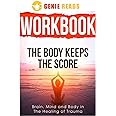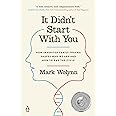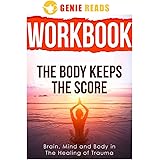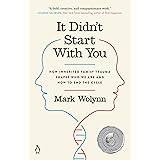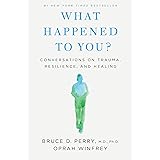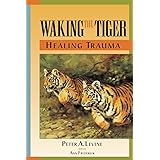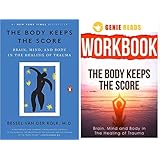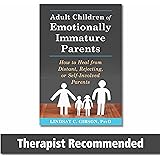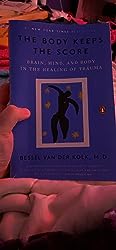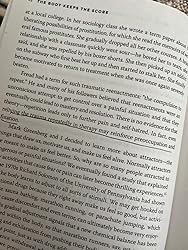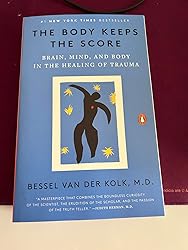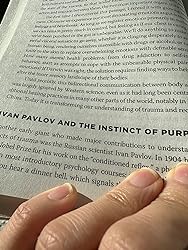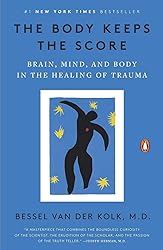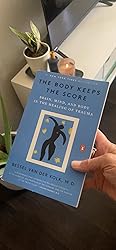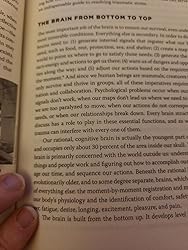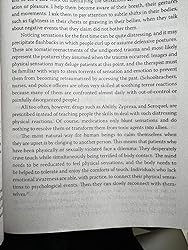
Enjoy fast, free delivery, exclusive deals, and award-winning movies & TV shows with Prime
Try Prime
and start saving today with fast, free delivery
Amazon Prime includes:
Fast, FREE Delivery is available to Prime members. To join, select "Try Amazon Prime and start saving today with Fast, FREE Delivery" below the Add to Cart button.
Amazon Prime members enjoy:- Cardmembers earn 5% Back at Amazon.com with a Prime Credit Card.
- Unlimited Free Two-Day Delivery
- Streaming of thousands of movies and TV shows with limited ads on Prime Video.
- A Kindle book to borrow for free each month - with no due dates
- Listen to over 2 million songs and hundreds of playlists
- Unlimited photo storage with anywhere access
Important: Your credit card will NOT be charged when you start your free trial or if you cancel during the trial period. If you're happy with Amazon Prime, do nothing. At the end of the free trial, your membership will automatically upgrade to a monthly membership.
Buy new:
-50% $16.93$16.93
Ships from: Amazon.com Sold by: Amazon.com
Save with Used - Good
$16.00$16.00
Ships from: Amazon Sold by: ATXB





Download the free Kindle app and start reading Kindle books instantly on your smartphone, tablet, or computer - no Kindle device required.
Read instantly on your browser with Kindle for Web.
Using your mobile phone camera - scan the code below and download the Kindle app.

Image Unavailable
Color:
-
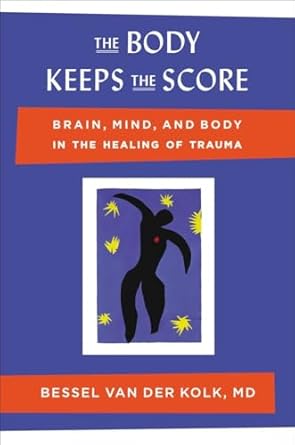
-
-
- To view this video download Flash Player
-

-

-
 VIDEO
VIDEO -

 Audible sample Sample
Audible sample Sample 


Follow the authors
OK
The Body Keeps the Score: Brain, Mind, and Body in the Healing of Trauma Hardcover – September 25, 2014
Purchase options and add-ons
Trauma is a fact of life. Veterans and their families deal with the painful aftermath of combat; one in five Americans has been molested; one in four grew up with alcoholics; one in three couples have engaged in physical violence. Such experiences inevitably leave traces on minds, emotions, and even on biology. Sadly, trauma sufferers frequently pass on their stress to their partners and children.
Renowned trauma expert Bessel van der Kolk has spent over three decades working with survivors. In The Body Keeps the Score, he transforms our understanding of traumatic stress, revealing how it literally rearranges the brain’s wiring—specifically areas dedicated to pleasure, engagement, control, and trust. He shows how these areas can be reactivated through innovative treatments including neurofeedback, mindfulness techniques, play, yoga, and other therapies. Based on Dr. van der Kolk’s own research and that of other leading specialists, The Body Keeps the Score offers proven alternatives to drugs and talk therapy—and a way to reclaim lives.
- Print length464 pages
- LanguageEnglish
- PublisherViking
- Publication dateSeptember 25, 2014
- Dimensions6.29 x 1.56 x 9.28 inches
- ISBN-100670785938
- ISBN-13978-0670785933
The Amazon Book Review
Book recommendations, author interviews, editors' picks, and more. Read it now.
Frequently bought together
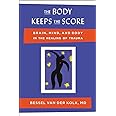
Similar items that may ship from close to you
 For real change to take place, the body needs to learn that the danger has passed and to live in the reality of the present.Highlighted by 31,632 Kindle readers
For real change to take place, the body needs to learn that the danger has passed and to live in the reality of the present.Highlighted by 31,632 Kindle readers Trauma results in a fundamental reorganization of the way mind and brain manage perceptions. It changes not only how we think and what we think about, but also our very capacity to think.Highlighted by 26,033 Kindle readers
Trauma results in a fundamental reorganization of the way mind and brain manage perceptions. It changes not only how we think and what we think about, but also our very capacity to think.Highlighted by 26,033 Kindle readers Being traumatized means continuing to organize your life as if the trauma were still going on—unchanged and immutable—as every new encounter or event is contaminated by the past.Highlighted by 24,674 Kindle readers
Being traumatized means continuing to organize your life as if the trauma were still going on—unchanged and immutable—as every new encounter or event is contaminated by the past.Highlighted by 24,674 Kindle readers
Editorial Reviews
Review
“In this inspirational work which seamlessly weaves keen clinical observation, neuroscience, historical analysis, the arts, and personal narrative, Dr. van der Kolk has created an authoritative guide to the effects of trauma, and pathways to recovery. The book is full of wisdom, humanity, compassion and scientific insight, gleaned from a lifetime of clinical service, research and scholarship in the field of traumatic stress. A must read for mental health and other health care professionals, trauma survivors, their loved ones, and those who seek clinical, social, or political solutions to the cycle of trauma and violence in our society.”
—Rachel Yehuda, Ph.D., professor of psychiatry and neuroscience, director of the Traumatic Stress Studies Division at the Mount Sinai School of Medicine, New York, NY
“This is an absolutely fascinating and clearly written book by one of the nation’s most experienced physicians in the field of emotional trauma. The Body Keeps the Score helps us understand how life experiences play out in the function and the malfunction of our bodies, years later.”
—Vincent J. Felitti, M.D., chief of preventative medicine, emeritus, Kaiser Permanente San Diego; co-principal investigator, ACE study
“Every once in a while, a book comes along that fundamentally changes the way we look at the world. Bessel van der Kolk has written such a book. The arc of Van der Kolk’s story is vast and comprehensive, but he is such a skillful storyteller that he keeps us riveted to the page. I could not put this book down. It is, simply put, a great work.”
—Stephen Cope, founder and director, Kripalu Institute for Extraordinary Living; author of Yoga and the Quest for the True Self
“Breathtaking in its scope and breadth, The Body Keeps the Score is a seminal work by one of the preeminent pioneers in trauma research and treatment. This essential book unites the evolving neuroscience of trauma research with an emergent wave of body-oriented therapies and traditional mind/body practices that go beyond symptom relief and connect us with our vital energy and here-and-now presence.”
—Peter A. Levine, Ph.D., author of In An Unspoken Voice: How the Body Releases Trauma and Restores Goodness
“Dr. van der Kolk's masterpiece combines the boundless curiosity of the scientist, the erudition of the scholar, and the passion of the truth teller.”
—Judith Herman, M.D., clinical professor of psychiatry, Harvard Medical School; author of Trauma and Recovery
“The Body Keeps the Score is clear, fascinating, hard to put down, and filled with powerful case histories. Van der Kolk, the eminent impresario of trauma treatment, who has spent a career bringing together diverse trauma scientists and clinicians and their ideas, while making his own pivotal contributions, describes what is arguably the most important series of breakthroughs in mental health in the last thirty years. We’ve known that psychological trauma fragments the mind. Here we see not only how psychological trauma also breaks connections within the brain, but also between mind and body, and learn about the exciting new approaches that allow people with the severest forms of trauma to put all the parts back together again.”
—Norman Doidge, author of The Brain That Changes Itself
“This exceptional book will be a classic of modern psychiatric thought. The impact of overwhelming experience can only be truly understood when many disparate domains of knowledge, such as neuroscience, developmental psychopathology, and interpersonal neurobiology are integrated, as this work uniquely does. There is no other volume in the field of traumatic stress that has distilled these domains of science with such rich historical and clinical perspectives, and arrived at such innovative treatment approaches. The clarity of vision and breadth of wisdom of this unique but highly accessible work is remarkable. This book is essential reading for anyone interested in understanding and treating traumatic stress and the scope of its impact on society.”
—Alexander McFarlane AO, MB BS (Hons) MD FRANZCP, director of the Centre for Traumatic Stress Studies, The University of Adelaide, South Australia
“The Body Keeps the Score articulates new and better therapies for toxic stress based on a deep understanding of the effects of trauma on brain development and attachment systems. This volume provides a moving summary of what is currently known about the effects of trauma on individuals and societies, and introduces the healing potential of both age-old and novel approaches to help traumatized children and adults fully engage in the present.”
—Jessica Stern, policy consultant on terrorism; author of Denial: A Memoir of Terror
“As an attachment researcher I know that infants are psychobiological beings. They are as much the body as they are of the brain. Without language or symbols infants use every one of their biological systems to make meaning of their self in relation to the world of things and people. Van der Kolk shows that those very same systems continue to operate at every age, and that traumatic experiences, especially chronic toxic experience during early development, produce psychic devastation. With this understanding he provides insight and guidance for survivors, researchers, and clinicians alike. Bessel van der Kolk may focus on the body and trauma, but what a mind he must have to have written this book.”
—Ed Tronick, distinguished professor, University of Massachusetts, Boston; author of Neurobehavior and Social Emotional Development of Infants and Young Children
“This book is a tour de force. Its deeply empathic, insightful, and compassionate perspective promises to further humanize the treatment of trauma victims, dramatically expand their repertoire of self-regulatory healing practices and therapeutic options, and also stimulate greater creative thinking and research on trauma and its effective treatment. The body does keep the score, and Van der Kolk’s ability to demonstrate this through compelling descriptions of the work of others, his own pioneering trajectory and experience as the field evolved and him along with it, and above all, his discovery of ways to work skillfully with people by bringing mindfulness to the body (as well as to their thoughts and emotions) through yoga, movement, and theater are a wonderful and welcome breath of fresh air and possibility in the therapy world.”
—Jon Kabat-Zinn, professor of medicine emeritus, UMass Medical School; author of Full Catastrophe Living
“In The Body Keeps the Score we share the author’s courageous journey into the parallel dissociative worlds of trauma victims and the medical and psychological disciplines that are meant to provide relief. In this compelling book we learn that as our minds desperately try to leave trauma behind, our bodies keep us trapped in the past with wordless emotions and feelings. These inner disconnections cascade into ruptures in social relationships with disastrous effects on marriages, families, and friendships. Van der Kolk offers hope by describing treatments and strategies that have successfully helped his patients reconnect their thoughts with their bodies. We leave this shared journey understanding that only through fostering self-awareness and gaining an inner sense of safety will we, as a species, fully experience the richness of life.”
—Stephen W. Porges, PhD, professor of psychiatry, University of North Carolina at Chapel Hill; author of The Polyvagal Theory: Neurophysiological Foundations of Emotions, Attachment, Communication, and Self-Regulation
“Bessel van der Kolk is unequaled in his ability to synthesize the stunning developments in the field of psychological trauma over the past few decades. Thanks in part to his work, psychological trauma—ranging from chronic child abuse and neglect, to war trauma and natural disasters—is now generally recognized as a major cause of individual, social, and cultural breakdown. In this masterfully lucid and engaging tour de force, Van der Kolk takes us—both specialists and the general public— on his personal journey and shows what he has learned from his research, from his colleagues and students, and, most important, from his patients. The Body Keeps the Score is, simply put, brilliant.”
—Onno van der Hart, PhD, Utrecht University, The Netherlands; senior author, The Haunted Self: Structural Dissociation and the Treatment of Chronic Traumatization
“A fascinating exploration of a wide range of therapeutic treatments shows readers how to take charge of the healing process, gain a sense of safety, and find their way out of the morass of suffering.”
—Francine Shapiro, PhD, originator of EMDR therapy; senior research fellow, Emeritus Mental Research Institute; author of Getting Past Your Past
“In this magnificent book, Bessel van der Kolk takes the reader on a captivating journey that is chock-full of riveting stories of patients and their struggles interpreted through history, research, and neuroscience made accessible in the words of a gifted storyteller. We are privy to the author’s own courageous efforts to understand and treat trauma over the past forty years, the results of which have broken new ground and challenged the status quo of psychiatry and psychotherapy. The Body Keeps the Score leaves us with both a profound appreciation for and a felt sense of the debilitating effects of trauma, along with hope for the future through fascinating descriptions of novel approaches to treatment. This outstanding volume is absolutely essential reading not only for therapists but for all who seek to understand, prevent, or treat the immense suffering caused by trauma.”
—Pat Ogden PhD, founder/educational director of the Sensorimotor Psychotherapy Institute; author of Sensorimotor Psychotherapy: Interventions for Trauma and Attachment
“A book about understanding the impact of trauma by one of the true pioneers in the field. It is a rare book that integrates cutting edge neuroscience with wisdom and understanding about the experience and meaning of trauma, for people who have suffered from it. Like its author, this book is wise and compassionate, occasionally quite provocative, and always interesting.”
—Glenn N. Saxe, MD, Arnold Simon Professor and chairman, Department of Child and Adolescent Psychiatry; director, NYU Child Study Center, New York University School of Medicine
“The Body Keeps the Score eloquently articulates how overwhelming experiences affect the development of brain, mind, and body awareness, all of which are closely intertwined. The resulting derailments have a profound impact on the capacity for love and work. This rich integration of clinical case examples with ground breaking scientific studies provides us with a new understanding of trauma, which inevitably leads to the exploration of novel therapeutic approaches that ‘rewire’ the brain, and help traumatized people to reengage in the present. This book will provide traumatized individuals with a guide to healing and permanently change how psychologists and psychiatrists think about trauma and recovery.”
—Ruth A. Lanius, MD, PhD, Harris-Woodman chair in Psyche and Soma, professor of psychiatry, and director PTSD research at the University of Western Ontario; author of The Impact of Early Life Trauma on Health and Disease
“This is an amazing accomplishment from the neuroscientist most responsible for the contemporary revolution in mental health toward the recognition that so many mental problems are the product of trauma. With the compelling writing of a good novelist, van der Kolk revisits his fascinating journey of discovery that has challenged established wisdom in psychiatry. Interspersed with that narrative are clear and understandable descriptions of the neurobiology of trauma; explanations of the ineffectiveness of traditional approaches to treating trauma; and introductions to the approaches that take patients beneath their cognitive minds to heal the parts of them that remained frozen in the past. All this is illustrated vividly with dramatic case histories and substantiated with convincing research. This is a watershed book that will be remembered as tipping the scales within psychiatry and the culture at large toward the recognition of the toll traumatic events and our attempts to deny their impact take on us all.”
—Richard Schwartz, originator, Internal Family Systems Therapy
“When it comes to understanding the impact of trauma and being able to continue to grow despite overwhelming life experiences, Bessel van der Kolk leads the way in his comprehensive knowledge, clinical courage, and creative strategies to help us heal. The Body Keeps the Score is a cutting-edge offering for the general reader to comprehend the complex effects of trauma, and a guide to a wide array of scientifically informed approaches to not only reduce suffering, but to move beyond mere survival— and to thrive.”
—Daniel J. Siegel, MD, clinical professor, UCLA School of Medicine, author of Brainstorm: The Power and Purpose of the Teenage Brain; Mindsight: The New Science of Personal Transformation; and The Developing Mind: How Relationships and the Brain Interact to Shape Who We Are
“This is masterpiece of powerful understanding and brave heartedness, one of the most intelligent and helpful works on trauma I have ever read. Dr. Van der Kolk offer a brilliant synthesis of clinical cases, neuroscience, powerful tools and caring humanity, offering a whole new level of healing for the traumas carried by so many.”
—Jack Kornfied, author of A Path With Heart
About the Author
Excerpt. © Reprinted by permission. All rights reserved.
PROLOGUE
FACING TRAUMA
One does not have be a combat soldier, or visit a refugee camp in Syria or the Congo to encounter trauma. Trauma happens to us, our friends, our families, and our neighbors. Research by the Centers for Disease Control and Prevention has shown that one in five Americans was sexually molested as a child; one in four was beaten by a parent to the point of a mark being left on their body; and one in three couples engages in physical violence. A quarter of us grew up with alcoholic relatives, and one out of eight witnessed their mother being beaten or hit.1
As human beings we belong to an extremely resilient species. Since time immemorial we have rebounded from our relentless wars, countless disasters (both natural and man-made), and the violence and betrayal in our own lives. But traumatic experiences do leave traces, whether on a large scale (on our histories and cultures) or close to home, on our families, with dark secrets being imperceptibly passed down through generations. They also leave traces on our minds and emotions, on our capacity for joy and intimacy, and even on our biology and immune systems.
Trauma affects not only those who are directly exposed to it, but also those around them. Soldiers returning home from combat may frighten their families with their rages and emotional absence. The wives of men who suffer from PTSD tend to become depressed, and the children of depressed mothers are at risk of growing up insecure and anxious. Having been exposed to family violence as a child often makes it difficult to establish stable, trusting relationships as an adult.
Trauma, by definition, is unbearable and intolerable. Most rape victims, combat soldiers, and children who have been molested become so upset when they think about what they experienced that they try to push it out of their minds, trying to act as if nothing happened, and move on. It takes tremendous energy to keep functioning while carrying the memory of terror, and the shame of utter weakness and vulnerability.
While we all want to move beyond trauma, the part of our brain that is devoted to ensuring our survival (deep below our rational brain) is not very good at denial. Long after a traumatic experience is over, it may be reactivated at the slightest hint of danger and mobilize disturbed brain circuits and secrete massive amounts of stress hormones. This precipitates unpleasant emotions intense physical sensations, and impulsive and aggressive actions. These posttraumatic reactions feel incomprehensible and overwhelming. Feeling out of control, survivors of trauma often begin to fear that they are damaged to the core and beyond redemption.
• • •
The first time I remember being drawn to study medicine was at a summer camp when I was about fourteen years old. My cousin Michael kept me up all night explaining the intricacies of how kidneys work, how they secrete the body’s waste materials and then reabsorb the chemicals that keep the system in balance. I was riveted by his account of the miraculous way the body functions. Later, during every stage of my medical training, whether I was studying surgery, cardiology, or pediatrics, it was obvious to me that the key to healing was understanding how the human organism works. When I began my psychiatry rotation, however, I was struck by the contrast between the incredible complexity of the mind and the ways that we human beings are connected and attached to one another, and how little psychiatrists knew about the origins of the problems they were treating. Would it be possible one day to know as much about brains, minds, and love as we do about the other systems that make up our organism?
We are obviously still years from attaining that sort of detailed understanding, but the birth of three new branches of science has led to an explosion of knowledge about the effects of psychological trauma, abuse, and neglect. Those new disciplines are neuroscience, the study of how the brain supports mental processes; developmental psychopathology, the study of the impact of adverse experiences on the development of mind and brain; and interpersonal neurobiology, the study of how our behavior influences the emotions, biology, and mind-sets of those around us.
Research from these new disciplines has revealed that trauma produces actual physiological changes, including a recalibration of the brain’s alarm system, an increase in stress hormone activity, and alterations in the system that filters relevant information from irrelevant. We now know that trauma compromises the brain area that communicates the physical, embodied feeling of being alive. These changes explain why traumatized individuals become hypervigilant to threat at the expense of spontaneously engaging in their day-to-day lives. They also help us understand why traumatized people so often keep repeating the same problems and have such trouble learning from experience. We now know that their behaviors are not the result of moral failings or signs of lack of willpower or bad character—they are caused by actual changes in the brain.
This vast increase in our knowledge about the basic processes that underlie trauma has also opened up new possibilities to palliate or even reverse the damage. We can now develop methods and experiences that utilize the brain’s own natural neuroplasticity to help survivors feel fully alive in the present and move on with their lives. There are fundamentally three avenues: 1) top down, by talking, (re-) connecting with others, and allowing ourselves to know and understand what is going on with us, while processing the memories of the trauma; 2) by taking medicines that shut down inappropriate alarm reactions, or by utilizing other technologies that change the way the brain organizes information, and 3) bottom up: by allowing the body to have experiences that deeply and viscerally contradict the helplessness, rage, or collapse that result from trauma. Which one of these is best for any particular survivor is an empirical question. Most people I have worked with require a combination.
This has been my life’s work. In this effort I have been supported by my colleagues and students at the Trauma Center, which I founded thirty years ago. Together we have treated thousands of traumatized children and adults: victims of child abuse, natural disasters, wars, accidents, and human trafficking; people who have suffered assaults by intimates and strangers. We have a long tradition of discussing all our patients in great depth at weekly treatment team meetings and carefully tracking how well different forms of treatment work for particular individuals.
Our principal mission has always been to take care of the children and adults who have come to us for treatment, but from the very beginning we also have dedicated ourselves to conducting research to explore the effects of traumatic stress on different populations and to determine what treatments work for whom. We have been supported by research grants from the National Institute of Mental Health, the National Center for Complementary and Alternative Medicine, the Centers for Disease Control, and a number of private foundations to study the efficacy of many different forms of treatment, from medications to talking, yoga, EMDR, theater, and neurofeedback.
The challenge is: How can people gain control over the residues of past trauma and return to being masters of their own ship? Talking, understanding, and human connections help, and drugs can dampen hyperactive alarm systems. But we will also see that the imprints from the past can be transformed by having physical experiences that directly contradict the helplessness, rage, and collapse that are part of trauma, and thereby regaining self-mastery. I have no preferred treatment modality, as no single approach fits everybody, but I practice all the forms of treatment that I discuss in this book. Each one of them can produce profound changes, depending on the nature of the particular problem and the makeup of the individual person.
I wrote this book to serve as both a guide and an invitation—an invitation to dedicate ourselves to facing the reality of trauma, to explore how best to treat it, and to commit ourselves, as a society, to using every means we have to prevent it.
PART ONE
THE REDISCOVERY OF TRAUMA
CHAPTER 1
LESSONS FROM VIETNAM VETERANS
I became what I am today at the age of twelve, on a frigid overcast day in the winter of 1975. . . . That was a long time ago, but it’s wrong what they say about the past. . . . Looking back now, I realize I have been peeking into that deserted alley for the last twenty-six years.
—Khaled Hosseini, The Kite Runner
Some people’s lives seem to flow in a narrative; mine had many stops and starts. That’s what trauma does. It interrupts the plot. . . . It just happens, and then life goes on. No one prepares you for it.
—Jessica Stern, Denial: A Memoir of Terror
The Tuesday after the Fourth of July weekend, 1978, was my first day as a staff psychiatrist at the Boston Veterans Administration Clinic. As I was hanging a reproduction of my favorite Breughel painting, “The Blind Leading the Blind,” on the wall of my new office, I heard a commotion in the reception area down the hall. A moment later a large, disheveled man in a stained three-piece suit, carrying a copy of Soldier of Fortune magazine under his arm, burst through my door. He was so agitated and so clearly hungover that I wondered how I could possibly help this hulking man. I asked him to take a seat, and tell me what I could do for him.
His name was Tom. Ten years earlier he had been in the Marines, doing his service in Vietnam. He had spent the holiday weekend holed up in his downtown-Boston law office, drinking and looking at old photographs, rather than with his family. He knew from previous years’ experience that the noise, the fireworks, the heat, and the picnic in his sister’s backyard against the backdrop of dense early-summer foliage, all of which reminded him of Vietnam, would drive him crazy. When he got upset he was afraid to be around his family because he behaved like a monster with his wife and two young boys. The noise of his kids made him so agitated that he would storm out of the house to keep himself from hurting them. Only drinking himself into oblivion or riding his Harley-Davidson at dangerously high speeds helped him to calm down.
Nighttime offered no relief—his sleep was constantly interrupted by nightmares about an ambush in a rice paddy back in ’Nam, in which all the members of his platoon were killed or wounded. He also had terrifying flashbacks in which he saw dead Vietnamese children. The nightmares were so horrible that he dreaded falling asleep and he often stayed up for most of the night, drinking. In the morning his wife would find him passed out on the living room couch, and she and the boys had to tiptoe around him while she made them breakfast before taking them to school.
Filling me in on his background, Tom said that he had graduated from high school in 1965, the valedictorian of his class. In line with his family tradition of military service he enlisted in the Marine Corps immediately after graduation. His father had served in World War II in General Patton’s army, and Tom never questioned his father’s expectations. Athletic, intelligent, and an obvious leader, Tom felt powerful and effective after finishing basic training, a member of a team that was prepared for just about anything. In Vietnam he quickly became a platoon leader, in charge of eight other Marines. Surviving slogging through the mud while being strafed by machine-gun fire can leave people feeling pretty good about themselves—and their comrades.
At the end of his tour of duty Tom was honorably discharged, and all he wanted was to put Vietnam behind him. Outwardly that’s exactly what he did. He attended college on the GI Bill, graduated from law school, married his high school sweetheart, and had two sons. Tom was upset by how difficult it was to feel any real affection for his wife, even though her letters had kept him alive in the madness of the jungle. Tom went through the motions of living a normal life, hoping that by faking it he would learn to become his old self again. He now had a thriving law practice and a picture-perfect family, but he sensed he wasn’t normal; he felt dead inside.
Although Tom was the first veteran I had ever encountered on a professional basis, many aspects of his story were familiar to me. I grew up in postwar Holland, playing in bombed-out buildings, the son of a man who had been such an outspoken opponent of the Nazis that he had been sent to an internment camp. My father never talked about his war experiences, but he was given to outbursts of explosive rage that stunned me as a little boy. How could the man I heard quietly going down the stairs every morning to pray and read the Bible while the rest of the family slept have such a terrifying temper? How could someone whose life was devoted to the pursuit of social justice be so filled with anger? I witnessed the same puzzling behavior in my uncle, who had been captured by the Japanese in the Dutch East Indies (now Indonesia) and sent as a slave laborer to Burma, where he worked on the famous bridge over the river Kwai. He also rarely mentioned the war, and he, too, often erupted into uncontrollable rages.
As I listened to Tom, I wondered if my uncle and my father had had nightmares and flashbacks—if they, too, had felt disconnected from their loved ones and unable to find any real pleasure in their lives. Somewhere in the back of my mind there must also have been my memories of my frightened—and often frightening—mother, whose own childhood trauma was sometimes alluded to and, I now believe, was frequently reenacted. She had the unnerving habit of fainting when I asked her what her life was like as a little girl and then blaming me for making her so upset.
Reassured by my obvious interest, Tom settled down to tell me just how scared and confused he was. He was afraid that he was becoming just like his father, who was always angry and rarely talked with his children—except to compare them unfavorably with his comrades who had lost their lives around Christmas 1944, during the Battle of the Bulge.
As the session was drawing to a close, I did what doctors typically do: I focused on the one part of Tom’s story that I thought I understood—his nightmares. As a medical student I had worked in a sleep laboratory, observing people’s sleep/dream cycles, and had assisted in writing some articles about nightmares. I had also participated in some early research on the beneficial effects of the psychoactive drugs that were just coming into use in the 1970s. So, while I lacked a true grasp of the scope of Tom’s problems, the nightmares were something I could relate to, and as an enthusiastic believer in better living through chemistry, I prescribed a drug that we had found to be effective in reducing the incidence and severity of nightmares. I scheduled Tom for a follow-up visit two weeks later.
When he returned for his appointment, I eagerly asked Tom how the medicines had worked. He told me he hadn’t taken any of the pills. Trying to conceal my irritation, I asked him why. “I realized that if I take the pills and the nightmares go away,” he replied, “I will have abandoned my friends, and their deaths will have been in vain. I need to be a living memorial to my friends who died in Vietnam.”
I was stunned: Tom’s loyalty to the dead was keeping him from living his own life, just as his father’s devotion to his friends had kept him from living. Both father’s and son’s experiences on the battlefield had rendered the rest of their lives irrelevant. How had that happened, and what could we do about it? That morning I realized I would probably spend the rest of my professional life trying to unravel the mysteries of trauma. How do horrific experiences cause people to become hopelessly stuck in the past? What happens in people’s minds and brains that keeps them frozen, trapped in a place they desperately wish to escape? Why did this man’s war not come to an end in February 1969, when his parents embraced him at Boston’s Logan International Airport after his long flight back from Da Nang?
Tom’s need to live out his life as a memorial to his comrades taught me that he was suffering from a condition much more complex than simply having bad memories or damaged brain chemistry—or altered fear circuits in the brain. Before the ambush in the rice paddy, Tom had been a devoted and loyal friend, someone who enjoyed life, with many interests and pleasures. In one terrifying moment, trauma had transformed everything.
Product details
- Publisher : Viking; 1st edition (September 25, 2014)
- Language : English
- Hardcover : 464 pages
- ISBN-10 : 0670785938
- ISBN-13 : 978-0670785933
- Item Weight : 1.5 pounds
- Dimensions : 6.29 x 1.56 x 9.28 inches
- Best Sellers Rank: #1,135 in Books (See Top 100 in Books)
- #1 in Medical Neuropsychology
- #4 in Anxiety Disorders (Books)
- #8 in Post-traumatic Stress Disorder
- Customer Reviews:
About the authors

Bessel van der Kolk (born 1943) is a Boston based psychiatrist noted for his research in the area of post-traumatic stress since the 1970s. His work focuses on the interaction of attachment, neurobiology, and developmental aspects of trauma’s effects on people. His major publication, the New York Times bestseller, 'The Body keeps the Score', talks about how the role of trauma in psychiatric illness has changed over the past 20 years; what we have learned about the ways the brain is shaped by traumatic experiences; how traumatic stress is a response of the entire organism and how that knowledge needs be integrated into healing practices.
Bio from Wikipedia, the free encyclopedia.

Discover more of the author’s books, see similar authors, read author blogs and more
Customer reviews
Customer Reviews, including Product Star Ratings help customers to learn more about the product and decide whether it is the right product for them.
To calculate the overall star rating and percentage breakdown by star, we don’t use a simple average. Instead, our system considers things like how recent a review is and if the reviewer bought the item on Amazon. It also analyzed reviews to verify trustworthiness.
Learn more how customers reviews work on AmazonReviews with images
-
Top reviews
Top reviews from the United States
There was a problem filtering reviews right now. Please try again later.
So, this book changed my life. No, really. In fact, it’s *saved* it.
I have severe PTSD. And despite years of therapy, it seemed to be getting worse instead of better. My flashbacks were occurring more and more often. I was becoming more and more lethargic and frozen in time. And suicide was constantly just *there* in my mind. Constant. I’d even set a date.
And then my insurance quit paying for my therapy.
As a last, desperate grasp for help, I started to read this book.
I have never read anything more validating and more hopeful. To see the brain scans and hear the science that explained *exactly* what has happened to my brain, what is going on during my flashbacks and why I’m always physically sick—all the times I’ve gone to a doctor in pain or feeling like I’m having a heart attack or a stroke only to be told they can’t find anything wrong—brought me to tears. It gave me all the answers I’ve been searching for. It gave everything a scientific, medical explanation—and a path to *healing*.
He explained why all of my EMDR therapy wasn’t working—it was because my therapists (bless them!) were doing it wrong. And I’ve been able to take what I’ve learned from my therapists and this book and do EMDR on my own, and today... today I feel more like my old, genuine self, than I have in *years*. The shadow of suicidal thoughts no longer follows me. I feel *light*. And I have *hope*—genuine *hope*—that I actually *can* get better! I’m always telling people *they* can get better and there’s hope for *them*... but I haven’t felt that way about myself. Now, I do. I haven’t had that hope in a long, *long* time. And I even think, after years of struggling and finally making such great progress in such a short time, maybe—just maybe—I can be cured. I never thought I’d say that! The future is so exciting to me now!
If you have trauma, do be warned—Dr. van der Kolk talks a lot about his clients and their traumatic experiences and it can be very triggering. Some of the details I felt he definitely could’ve left out, honestly. However, the scientific information, the validation and the information on how to heal trauma, has made this book absolutely *priceless* to me. It’s my trauma bible. I’ll be re-reading it in the future and constantly referring to it.
Edit: I keep seeing reviews on here from people who were super upset by the story of the Vietnam vet who murdered a family, raped the mother and left her to die. Honestly, I flipped out at that part, too (aka, had a flashback), in large part because I misunderstood what Dr. van der Kolk was trying to say. I thought for a moment that he was trying to justify what the man did, and had to email my old therapist about it. She read the scene and encouraged me to reread his conclusion, and pointed out to me that he’s actually saying how difficult it was to try to treat him objectively because what the man had done was an absolute atrocity. He never actually justifies it. He calls it an atrocity. It’s just worded weird, and if you’re already triggered by what you’ve just read, it is *easily* misunderstood. I hope he clarifies this in future editions. You have to keep in mind that, van der Kolk’s target audience is actually other therapists. For this reason, it *was* difficult for me to read. I was violently attacked and molested at 5-years-old and repeatedly raped and abused as a teenager. His going over other people’s abuse is overly detailed at times and I had to skip many of those scenes.
However, I don’t hold any of this against him at all. The information in this book has changed my life, I feel seen and validated, and I stand by that almost a year after reading it. I keep it right on my writing desk where it’s easily found for reference. Am I cured yet? No. Did my flashbacks stop? Nope. This year has been an unexpected nightmare full of triggers. But I’ve made *so* much progress. And I have hope. And that’s what I need to make it through each day. I sincerely believe that, through a lot of work (which I’m willing to do!), I can be cured in time. And all of that started with this book.
However, I almost didn't buy this book: I was put off by the title. Familiar with major reviews of PTSD psychotherapy outcomes research, I know that research support for body-oriented approaches to treating psychological trauma psychopathology is thin at best, and such treatment models simply do not have the research validation of either EMDR (Eye Movement Desensitization and Reprocessing) and PE (Prolonged Exposure), neither of which are especially body-focused.
J. Interlandi's excellent article anticipating publication of this book - "A Revolutionary Approach to Treating PTSD" (New York Times Magazine, 2014.05.22 - available online) - initially supported my fears that for some inexplicable reason van der Kolk was now promoting some treatment model for which we have little confirming research. "Psychomotor therapy is neither widely practiced nor supported by clinical studies," Interlandi informs us. Provocateur he may be, but I'm strongly biased in favor of paying attention to therapies for which we do have solid empirical validation. Our clients do not deserve to be experimental subjects - maybe not even if they agree to this, as I'm not sure they can ever know enough to make a truly informed consent. Knowledge that PTSD and related disorders are usually highly curable, when using the right treatment protocols, sadly remains the possession of a minority of people, even in the professional psychotherapy world.
Yet the account of van der Kolk's therapy work in Interlandi's article is gripping. Becoming completely absorbed in the account, I was convinced. (I've been here before, reading van der Kolk's own accounts of his work.) And so the disruption begins! Deeper into the article, he has me. Van der Kolk's critique of CBT (cognitive behavioral therapy - a general class of therapies) and PE (E. Foa's exposure therapy model) is withering and correct: neither really work. "Trauma has nothing whatsoever to do with cognition...It has to do with your body being reset to interpret the world as a dangerous place....It's not something you can talk yourself out of." Interlandi reports that "That view places him on the fringes of the psychiatric mainstream."
But he's right, and I can't stress this enough. Why? Because as a trauma treatment professional I'm well aware of what the trauma treatment outcomes research actually says. The best current summary of this research well may be chapter 2 of Ecker, et al.'s (2012) "Unlocking the emotional brain". (Buy this book, too!) Ecker et al. brilliantly presents a synthetic summary that encompasses 11 existing therapy models which actually DO cure trauma psychopathology, if done right. In this context, what van der Kolk is doing makes perfect sense. Finally, it appears, the trauma psychotherapy field is moving toward a consensus which has strong credibility.
Van der Kolk's new book has many virtues. Parts One and Two (102 pp) provide a substantial review of the neuropsychology of trauma's impact on a person. It's fun, interesting, informative reading, for professional and layperson alike. Part Three (64 pp) surveys childhood development, attachment experience, and "the hidden epidemic of developmental trauma". Van der Kolk has for years been a leading champion of the idea that there is a type of PTSD which substantially differs from all the rest. It develops in response to chronic child abuse and/or neglect. I completely share his belief that the diagnosis of Developmental Trauma Disorder (sometimes called C-PTSD, with "C" meaning "Complex") is overdue for formal recognition. I find his review of the struggle to legitimize DTD as gripping and distressing as anything else in the book. It is anguishing to know that a major problem exists, AND that the psychiatric establishment simply refuses to acknowledge it. DTD/C-PTSD is no fantasy. We see and treat these people, as children and adults. They exist, and they are nothing like "ordinary" PTSD treatment clients.
Part Four (29 pp) focuses on memory. I've long thought that much writing on treating psychological trauma seems to miss the point: trauma memory is what causes the problem. Deal with that and the symptoms vanish. Why is this so hard to understand? Yet, it is not a common understanding at all. Explaining how trauma memory works is invariably enlightening to my clients. And experiencing what happens when we change the nature of trauma memory is revelatory to someone who's lived with it for years, if not decades. As he does throughout the book, van der Kolk offers fine stories about clients who have experienced exactly what I've seen happen in my clients, making excellent use of what cognitive research tells us: people understand things best through narratives. Offer a good narrative and you convince.
Psychological trauma therapy is complex, but we are now well prepared to launch into the book's core content - Part Five (154 pp), "Paths to Recovery". He gets right to it: we cannot undo the trauma, but we CAN undo its effect on us, and so get our "self" back. Ch. 13 reviews existing therapies. His approach is to repair "Descartes' Error" (see Damásio's 1994 book of that title) by viewing mind and body as a single coherent functional unit. His topical coverage is complete and his critique of current therapies acute - not to be missed.
He then writes of the importance of language (Ch. 14). We construct our narrative mainly in words, and the words we choose are critical. But language is not enough (this anticipates his next two chapters). Our senses encompass a larger world, and it's center is our body, where all our sensory receptors are located. Then he introduces the treatment model he's long advocated: EMDR (Eye Movement Desensitization and Reprocessing). I'm trained in EMDR, and in fact van der Kolk and I had the same instructor for our advanced training: Gerald Puk PhD. Van der Kolk tells an amusing and self-deprecating story about his advanced training experience, in which Puk was able to provide a strong corrective to his approach to clients. This is typical van der Kolk - he's a truth-teller, even when it may put him in a poor light! And,after all, at this point he has nothing to prove to anyone.
Finding an EMDR therapist is not hard (see his "Resources" section). Nor is it hard to find a yoga instructor, and yoga is what he advises for helping a trauma victim get back into their body. Yoga is a wise choice, because it is available, already widely known, and adaptable to a wide range of individuals and capabilities.
There is much more in Part Five, and the focus is on self-empowerment. "Victim no more!" as they say. Most trauma therapists have a keen interest in seeing their clients leave therapy charged up and ready to fully embrace their life - that certainly is my own emphasis. Van der Kolk's thoughts on self-empowerment for those in recovery from psychological trauma will be invaluable to any trauma psychotherapy client.
For psychotherapy professionals, this book will be both delightful and confirming. For everyone else, it will be a readable, gripping, highly educational tour of topics all of which are critical to a successful transition back from the impact of psychological trauma. That he gives prominent though not dominating emphasis to developmental trauma disorders is entirely appropriate. Our society has yet to grasp that child abuse and neglect is a more often chronic than not, and that its impact is largely ignored and poorly treated, if at all. This does not have to be. Get educated (this book will do that), then commit to being an advocate for children as well as for adults impacted by trauma. They all deserve the chance to be healed, and we can now do that. Van der Kolk shows us how.
The physical book: Jacket design is pleasant and interesting. Binding is less so: color of spine wrapping is semi-florescent, and of paper, not cloth. The book feels substantial and pleasant to hold and look at.
Organization -
* 6 pp: prefatory praise by peers and related luminaries (interesting comments from some important people in the field);
* 2 pp: Table of Contents;
* 356 pp: actual text;
* 4 pp: Appendix: Consensus proposed criteria for developmental trauma disorder
* 3 pp: Resources
* 4 pp: Further reading
* 51 pp: Notes
* 21 pp: Index
Top reviews from other countries
I then offered the book to him and when he started reading it, he finally started to piece together how his childhood affected his behaviour. He has now decided to look for a professional help to help him overcome his pille-up of small-t-traumas. I think this book is a relationship saver and everyone should read it!



